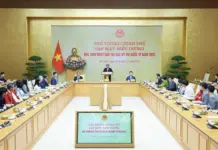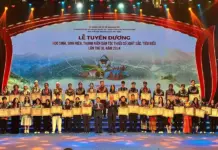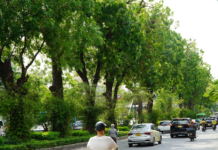The event marks the Thai traditional New Year. Songkran, also known as the Water Festival, is celebrated throughout the country during 13 – 15 April every year. The festival places emphasis on respect, love, and gratitude using water as means of expression.
Songkran is the occasion for family unions. Thai people often visit temples and clean their houses during the holiday. Fun-loving Thai people throw water at each other as a symbol of washing off the misfortune of the past year to welcome a new start.
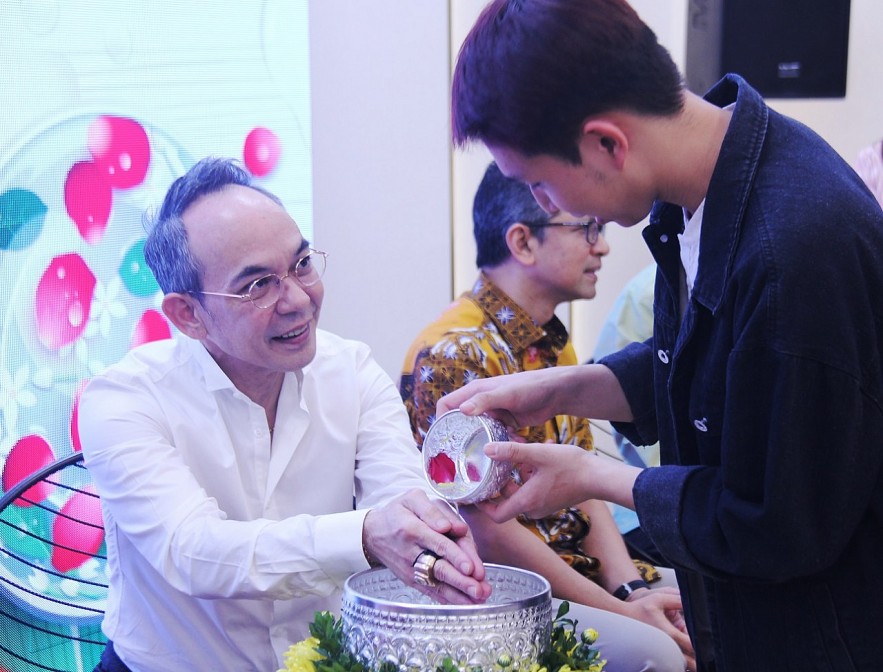 |
| Nikorndej Balankura, Ambassador of Thailand to Vietnam, and university students in Hanoi perform the “Rod Nam Dam Hua” or water pouring ceremony, which aims to pay respect to the elderly and ask for their blessings (Photo: Valerie Mai). |
This year’s event consists of a number of cultural activities to demonstrate how Thais celebrate their traditional New Year including “Rod Nam Dam Hua” or a water pouring ceremony, a showcase of Thai culinary by Thai chefs, dance performances, and workshops.
Thai companies also send representatives to events to introduce their products and services.
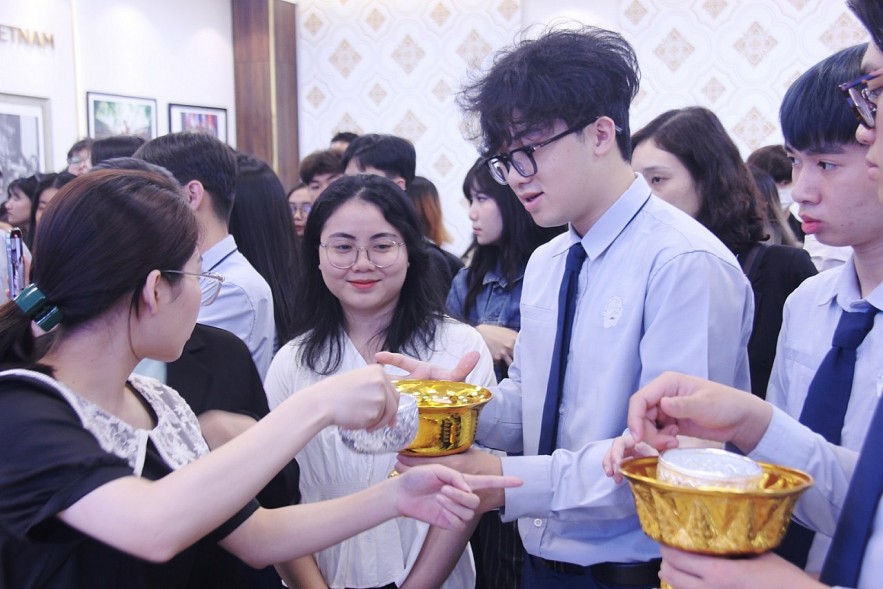 |
| The event welcomes students from leading universities in Hanoi, namely the Diplomatic Academy of Vietnam, Hanoi University, University of Languages and International Studies, University of Social Sciences and Humanities and FPT University (Photo: Valerie Mai). |
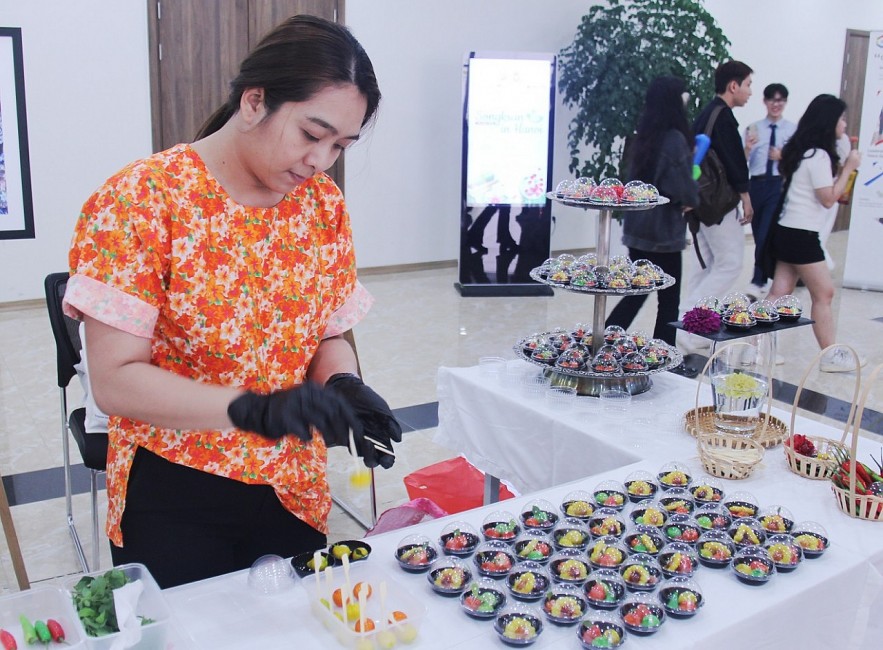 |
| Thai renowned dessert, “luk chup” is brought to the event (Photo: Valerie Mai). |
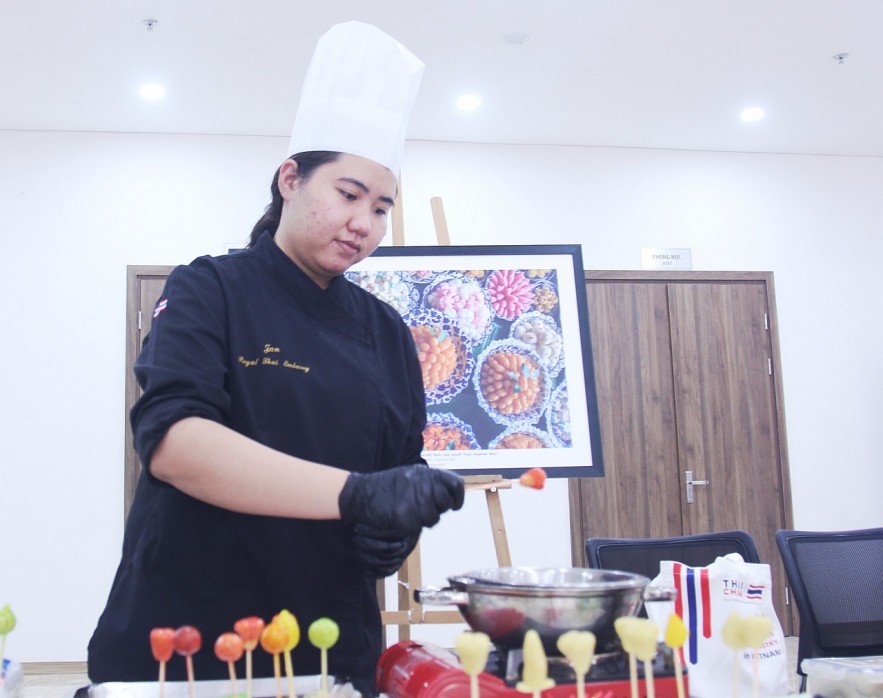 |
| Thai chef instruct Vietnamese students to make “luk chup” (Photo: Valerie Mai). |
Many students expressed their excitement about joining Songkran and learning Thai dance for the first time. Thanks to the event, they better understand Thai culture and have a fun experience with the festival.
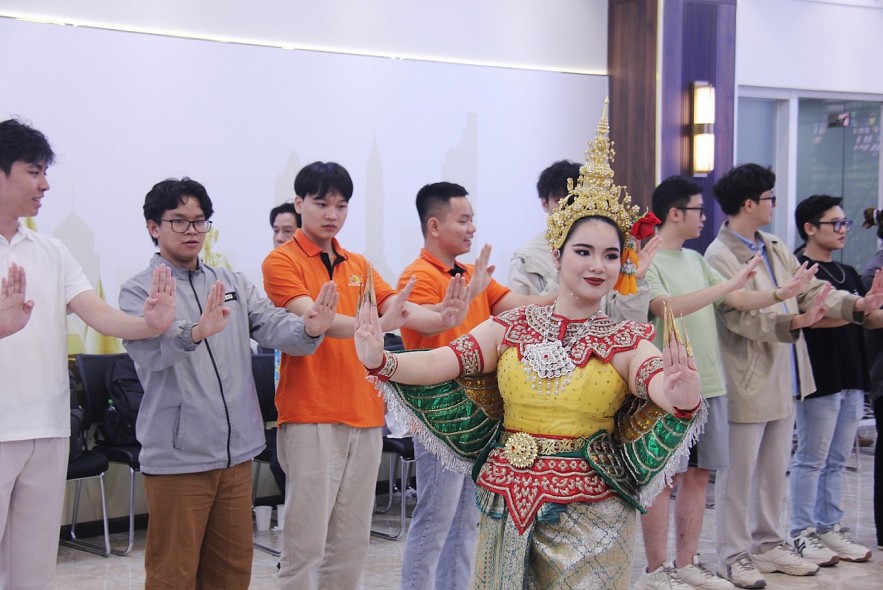 |
| Thai dancer teaches traditional dance to Vietnamese students (Photo: Valerie Mai). |
 |
| Vietnamese students learn to dance (Photo: Valerie Mai). |
Buoc hamlet preserves Thai ethnic minority culture
Buoc hamlet in Kham Xoe village, Hoa Binh province, is famous for its unspoiled natural landscape and primitive Thai ethnic minority population. Since it became an ecological and community tourism area in 2007, the hamlet has been attracting a growing number of visitors.






